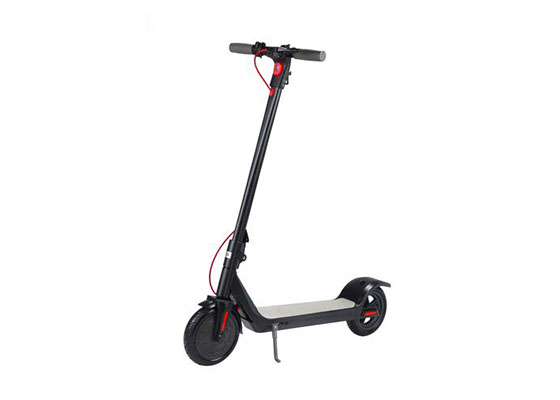The scooter business has gained significant popularity in recent years, revolutionizing urban transportation. As more people embrace the convenience and eco-friendliness of scooters, entrepreneurs and investors are exploring the profitability of this industry. In this blog post, we will delve into the factors that affect the profitability of the scooter business and discuss key considerations for those interested in entering this market.
Factors Affecting Profitability in the Scooter Business
Market Demand and Competition
The profitability of any business is heavily influenced by market demand and the level of competition. Before diving into the scooter business, it is crucial to analyze the demand for scooters in your target market. Conduct thorough market research to understand the potential customer base and their willingness to adopt scooters as a mode of transportation.
Simultaneously, examine the competitive landscape. Identify existing scooter companies and assess their market share, pricing strategies, and service quality. High competition can lead to price wars and reduced profit margins. However, a healthy level of competition may also indicate a strong market demand, presenting an opportunity for growth.
Operational Costs
To determine profitability, it is vital to consider the various operational costs associated with running a scooter business. These costs include the acquisition and maintenance of scooters, charging and recharging infrastructure, insurance and permits, labor and staffing expenses, and other overhead costs.
Efficient fleet management and maintenance play a significant role in reducing costs. Regular maintenance schedules, proper charging infrastructure, and smart operational practices can help optimize the lifespan and performance of scooters, minimizing repair and replacement expenses. Additionally, negotiating favorable insurance rates and exploring cost-effective labor options can positively impact profitability.
Pricing and Revenue Generation
Determining the right pricing strategy is critical for profitability in the scooter business. The price should be competitive enough to attract customers while ensuring that it covers operational costs and generates a reasonable profit. Consider factors such as the duration of rentals, distance covered, and additional services offered when devising pricing models.
Moreover, diversifying revenue streams can contribute to profitability. In addition to individual scooter rentals, consider offering subscription plans, corporate partnerships, and targeted advertising on scooters. These supplementary revenue sources can help offset costs and drive profitability.
Regulatory Considerations
The scooter business operates within a regulatory framework that varies from one location to another. Understanding and complying with local regulations and permits is essential to avoid penalties and legal issues that could impact profitability. Compliance costs, including licensing fees and safety requirements, should be factored into financial projections.
It’s important to stay informed about potential regulatory changes as the industry evolves. New restrictions or requirements may be introduced, affecting the operational scope and cost structure of the business. Maintaining a proactive approach to adapt to regulatory changes can help mitigate risks and maintain profitability.
Case Studies: Successful Scooter Businesses
Analyzing successful scooter businesses can provide valuable insights into profitability strategies. Let’s examine two prominent examples:
Sealup: Maximizing Operational Efficiency
Sealup has established itself as a profitable player in the scooter market by focusing on operational efficiency. By implementing a robust maintenance program and leveraging advanced fleet management software, they have minimized downtime and repair costs. Their emphasis on preventive maintenance has contributed to increased scooter lifespan and reduced operational expenses.
Additionally, Sealup has developed strategic partnerships with local businesses to expand its user base. Collaborations with restaurants, hotels, and tourist attractions have allowed them to cross-promote services, driving revenue through increased rentals and brand visibility.
Xiaomi: Data-Driven Pricing
Xiaomi has leveraged data analytics to continuously optimize their pricing strategies, leading to improved profitability. By analyzing customer behavior, demand patterns, and market trends, Xiaomi has been able to set dynamic pricing that reflects supply and demand fluctuations. This approach ensures that their scooters are priced competitively during peak hours while maximizing revenue during periods of high demand.
Moreover, Xiaomi has implemented a subscription-based model in addition to individual rentals. This provides customers with a convenient and cost-effective option for regular scooter usage, resulting in recurring revenue and increased customer loyalty. By diversifying their revenue streams, Xiaomi has created a stable income base that contributes to their overall profitability.
Challenges and Risks in the Scooter Business
While the scooter business holds potential for profitability, it is important to acknowledge the challenges and risks associated with the industry. Being aware of these factors can help entrepreneurs make informed decisions and develop strategies to mitigate risks. Here are some key challenges:
Infrastructure and Maintenance
Maintaining a reliable and efficient infrastructure is crucial for a successful scooter business. This includes having a robust network of charging stations, regular maintenance protocols, and a responsive customer support system. Infrastructure-related challenges such as limited charging points or inadequate maintenance can lead to customer dissatisfaction, increased operational costs, and reduced profitability.
Safety Concerns and Liability
Safety is a paramount concern in the scooter business. Accidents and injuries can result in significant liabilities, legal disputes, and reputational damage. It is vital for scooter businesses to prioritize safety measures, including rider education, implementing strict usage guidelines, and maintaining proper insurance coverage. By mitigating safety risks, businesses can minimize potential financial setbacks and protect their profitability.
Changing Regulatory Environment
The regulatory environment surrounding the scooter business is still evolving in many regions. Governments and local authorities often introduce new regulations and restrictions to address concerns related to safety, parking, and public nuisance. Adapting to these changing regulations can be challenging and may require additional investments in technology, permits, or compliance measures. Failure to comply with regulatory requirements can result in fines or even suspension of operations, negatively impacting profitability.
Consumer Behavior and Adoption
Consumer behavior and adoption patterns play a significant role in the profitability of the scooter business. While the demand for scooters has been steadily increasing, there are still segments of the population that may be hesitant to adopt this mode of transportation. Factors such as lack of awareness, concerns about safety, or preference for alternative modes of transportation can affect the overall demand and utilization of scooters. Understanding consumer preferences and addressing potential barriers to adoption are crucial for sustained profitability.
Conclusion
The profitability of the scooter business depends on a multitude of factors, including market demand, operational costs, pricing strategies, and regulatory considerations. By carefully analyzing these factors, learning from successful case studies, and addressing the associated challenges and risks, entrepreneurs can increase their chances of building a profitable scooter business. Ultimately, a comprehensive understanding of the industry dynamics, coupled with strategic decision-making, can pave the way for long-term success in this exciting and evolving market.
As the scooter business continues to evolve, entrepreneurs who prioritize customer satisfaction, operational efficiency, and compliance with regulatory requirements are likely to achieve sustainable profitability. With careful planning, effective execution, and continuous adaptation, the scooter business can offer a lucrative opportunity for those seeking to enter the urban mobility market.




